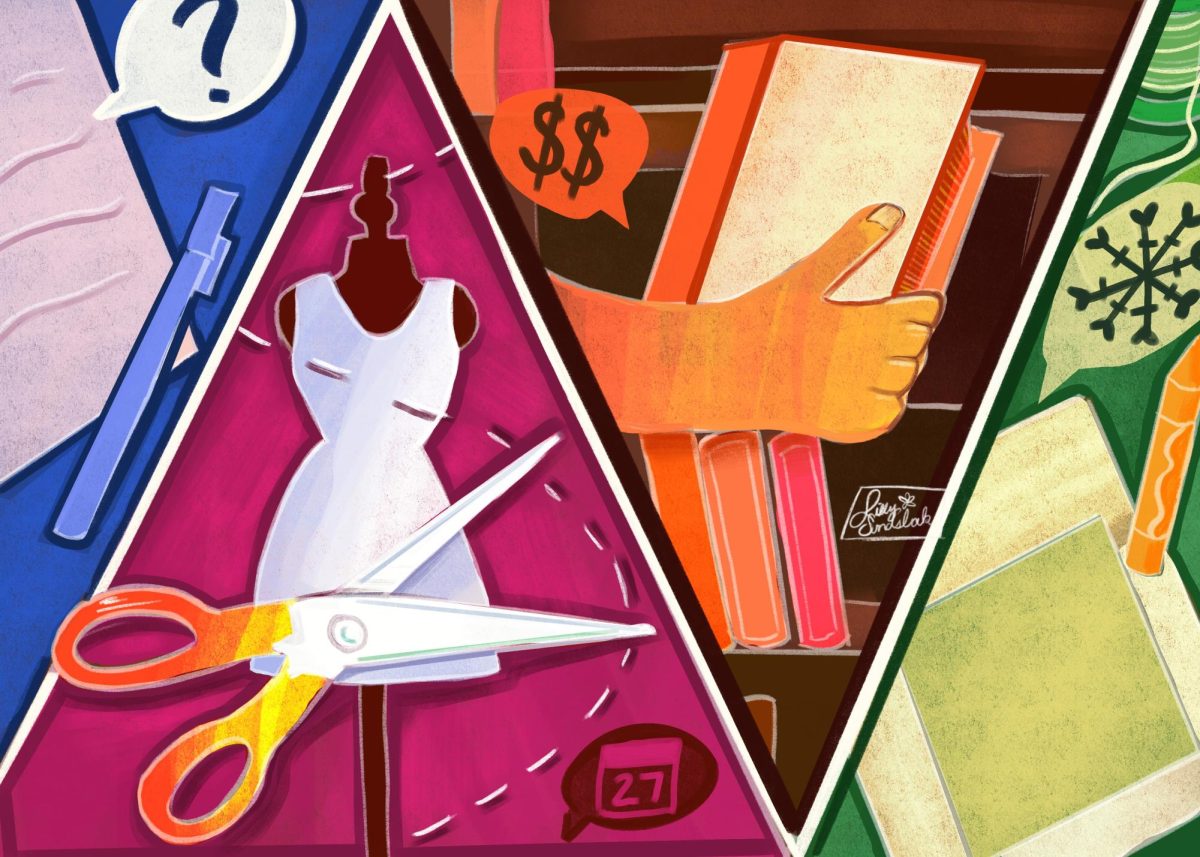Students who depend on campus employment during the fall semester to pay rent and bills often struggle during winter break when they are not able to work at the college.
Student employees will not be allowed to file hours while the college is officially closed, which is Dec. 23 to Jan. 1. Since some students are not able to work during the break, they have considered their budgets and change in income from weeks off of work.
Similar to other intermittent breaks, some students are allowed to work up to 25 hours per week depending on departmental needs and budgets, said Eric Wordlow, assistant director of Student Employment. There are 556 student workers at the college.
While some aren’t too worried about earning less during break, others worry about affording rent and utility bills.
Wordlow said that if a student seeks employment during the break, they will typically “reach out to their direct supervisor.” In some cases, supervisors will ask or notify student workers if they’re able to work during the break. Students who work at the library, Student Center or Career Center often have job opportunities the week after the semester ends and during J-Term.
Howie Alston, a senior film and television major and student employee at the library, said he wasn’t too stressed about money during the break, as he has already set aside money for rent next month.
Alston currently works 20 hours a week, and said he will try to work that same amount while being off of school to save up for future rent payments.
“I financially prepared myself for not being able to work for like 10 days because that’s money I’m losing if I don’t work,” Alston said.
Alston said he also works at Hero Coffee Bar on South Dearborn Street. However, he won’t be able to work there during part of the break since it will be closed due to their main customers being students, he said.
Manuela Lopes, a sophomore music major and peer coach at the Career Center, said they plan to work during the break and J-Term. As she is an international student, she will be in Brazil for two weeks, in which the college will be closed for a week and a half.
“I worry a lot about that because I pay for my own rent and food,” Lopes said. “I’m going to start paying for my own tuition alone too, so it’s a lot of financial burden.”
Lopes said they hope to work over their usual 18.5 hours to supplement the income lost from not being able to work. She’s already calculated how many more hours she will need.
They said they can’t afford to stay in Brazil for over two weeks due to the amount of money they lose from not working in that time.
Lopes said that there are a lot of students that do federal work-study or are international students, and they need their on-campus job and work during the break. “They really need the money,” she said.
Sophia Klun, a senior fashion studies major and student worker at the Fashion Studies Collection, said she is graduating in December and will lose her campus job. But she was offered 33 hours of contract work, continuing a project that she had started as a student worker. She will get a flat rate instead of the hourly minimum wage rate of $16.20. The flat rate will be less than she makes at the moment.
When Klun was a first-year and sophomore, she said she would try to find work back home to try to make some money during break. This year, however, Klun said she wanted to indulge herself in some “rest and relaxation.”
Despite worrying about rent and utility bills, Klun said the stress of earning money during this break is more in the back of her mind. “My more pressing concern right now is finding a job because I will no longer be employed as I graduate,” she said. “I’m just trying to make peace with it.”
During previous school breaks, like summer, Klun said that student employees’ work at the FSC had been inconsistently offered. “Every time a break rolls around, we get a little bit stressed out of whether we’ll be able to be here or not, which is kind of disheartening,” Klun said.
Anya Krumbine, a senior animation major and MakerSpace assistant, said she will not be working for the college during winter break and will be prioritizing her solo film.
The MakerSpace may not be open to students for use during winter break, but it may stay open for student employees to work and take inventory.
Krumbine said that she was “set” financially for housing and tuition, but it “stink[s] to not have money coming in” or to save. While she doesn’t have any other part-time jobs, she maintains an Etsy page that brings in some income, but it’s “just a little bit.”
“It’s a little stressful, but it’s not going to be the end of the world for me,” Krumbine said.
Isaac Carter, a senior graphic design major and Career Center ambassador, said he plans to work during J-Term, but he’s not sure whether or not his amount of hours will stray from his typical 18.5. Despite having a few weeks without work and pay, he said he isn’t worried.
“I can definitely see how [reduced work] would affect a student if they pay rent and stuff like that,” Carter said. “I’m lucky enough to commute and just stay with my parents.”
Carter said that he will typically “house a certain amount of funds” in his savings in case of emergencies — something he learned to do throughout his years of working and struggling with money.
Abigail Halla, a senior art history major and student crew member at the Student Center, said she will be working a little over winter break but not during J-Term due to her study abroad.
As the Student Center will be open until Dec. 20, Halla said she was only scheduled a couple of shifts and will be working about 10 hours that week instead of her usual 15. She said the Student Center had limited positions to offer during break, and some students that requested hours didn’t receive any.
Halla said that she took out a loan to pay for her study abroad and to account for the weeks she will not be working for the college.
She also thought the school would be more empathetic to their full-time students who are also student employees.
While it’s nice to have the time to spend with family, Halla said, she also needs to earn money to pay rent. “It would be nice to have the hours to work and to have the income instead of nothing,” she said.
Copy edited by Trinity Balboa










